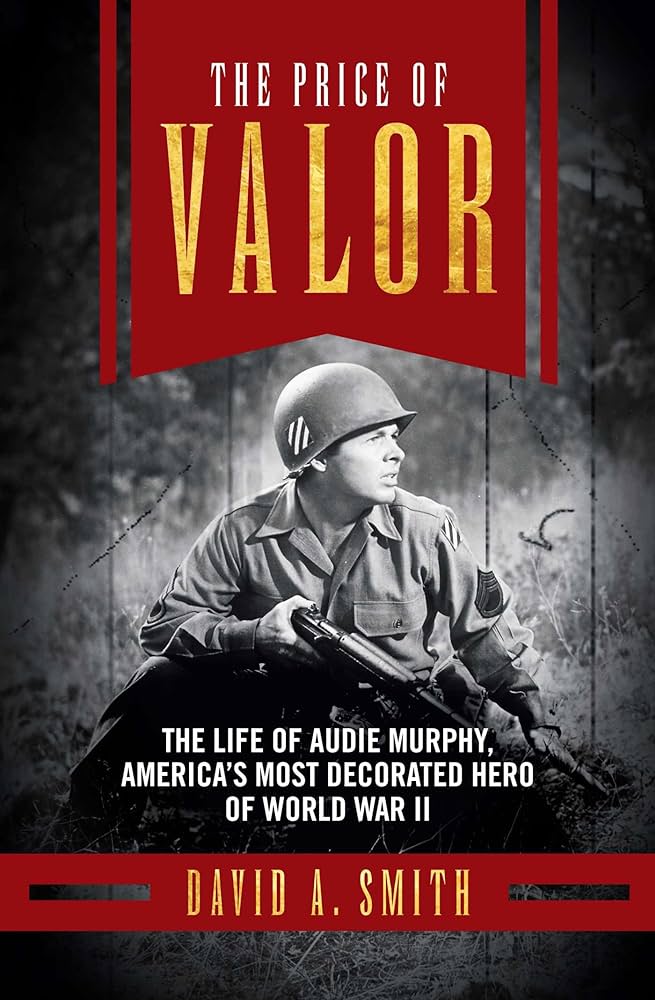The Price of Valor
The Life of Audie Murphy,
America's Most Decorated Hero of World War II
by David A. Smith
Reviewed by Ed Lengel

The Price of Valor: The Life of Audie Murphy, America’s Most Decorated Hero of World War II by David A. Smith.
New York: Regnery History, 2015
On June 20, 2024, Audie Murphy, one of America’s greatest military heroes, would have celebrated his one hundredth birthday. Or at least that’s what his Arlington cemetery tombstone says. Actually, he was born the following year. With the help of his older sister, Murphy faked his age to enlist in the army during the early days of World War II. In some ways the deception was appropriate; much of what the world thought it knew about Murphy was false, not so much by his celebrity, but because of his determination to deflect the facts about his “real” life.
Growing up impoverished in rural Texas, Murphy mastered self sufficiency–especially after his alcoholic father abandoned his family, and his mother died young. Audie worked to take care of his siblings with the same faithfulness he showed his comrades in combat during World War II; he served in North Africa, Italy, France, and Germany.
On January 26, 1945, he earned the Medal of Honor for standing atop a burning tank destroyer, to man a machine gun, and fight off an enemy attack. After the war, he ramped up to movie stardom star, showing his greatest ability in a replay of his experiences in the 1955 film, To Hell and Back.
Murphy’s courage has become a byword, and he had it in spades. As David A. Smith shows in The Price of Valor, however, Murphy also struggled throughout his whole life–to overcompensate his perceived handicaps; small stature, a broken family, humble beginnings; demons from battle-induced trauma, and the burdens of celebrity. He disliked public adulation.
Still, he was a man of integrity who valued his word, believed in honesty, fair play, and a total commitment to duty that lasted the length of his military service.
Time would prove that Murphy sacrificed his hopes of future happiness on the battlefields of Europe; he put his life in danger for his brothers-in-arms, and revealed his patriotism at the ballot box, during the Vietnam War, and supporting of law enforcement’s campaign against drug trafficking.
As with any human being–including Medal of Honor recipients–there was a darker side to Murphy. His struggles with what are now called post-traumatic stress disorder–now well-known–were no secret during his life. His violent behavior toward his family surely caused secondary trauma that would be familiar to spouses and children of combat veterans today. Even before the war, Murphy was a difficult, vulnerable gambling addict. It was the juxtaposition of these–vulnerabilities and failures–plus the outstanding aspects of his character that still make him fascinating and relevant.
Recapturing Audie Murphy–who died in an early 1971 plane crash–requires the empathy and balance that Smith demonstrates in this study. He was more than a soldier–he was an exceptional soldier–among the finest of his generation; he embodied the best attributes of leadership and selfless service. The price he paid was high; his psychological struggles were real, but Murphy deployed the same character qualities that have made him memorable; in that way, he set a powerful and public example for troubled veterans.
Ed Lengel is an author, a speaker, and a storyteller.




